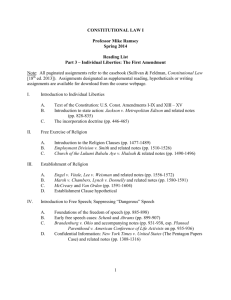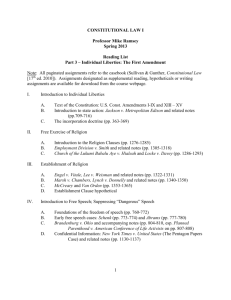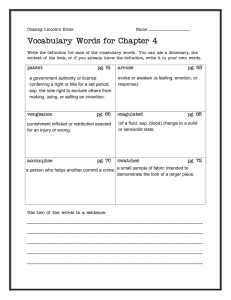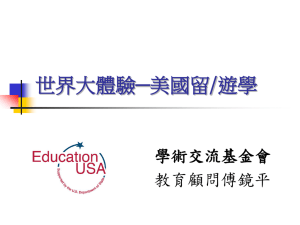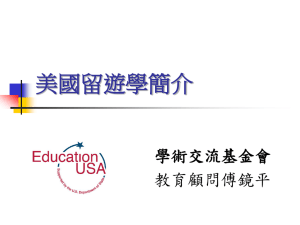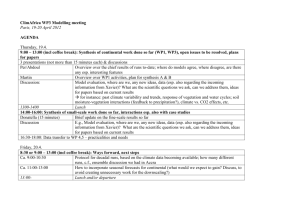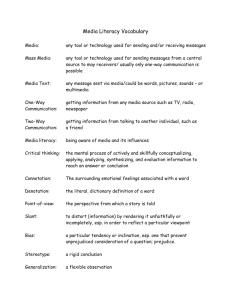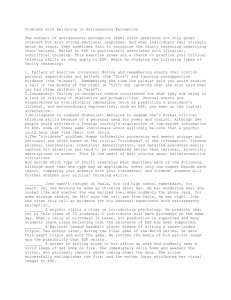Term 1, Week 1
advertisement
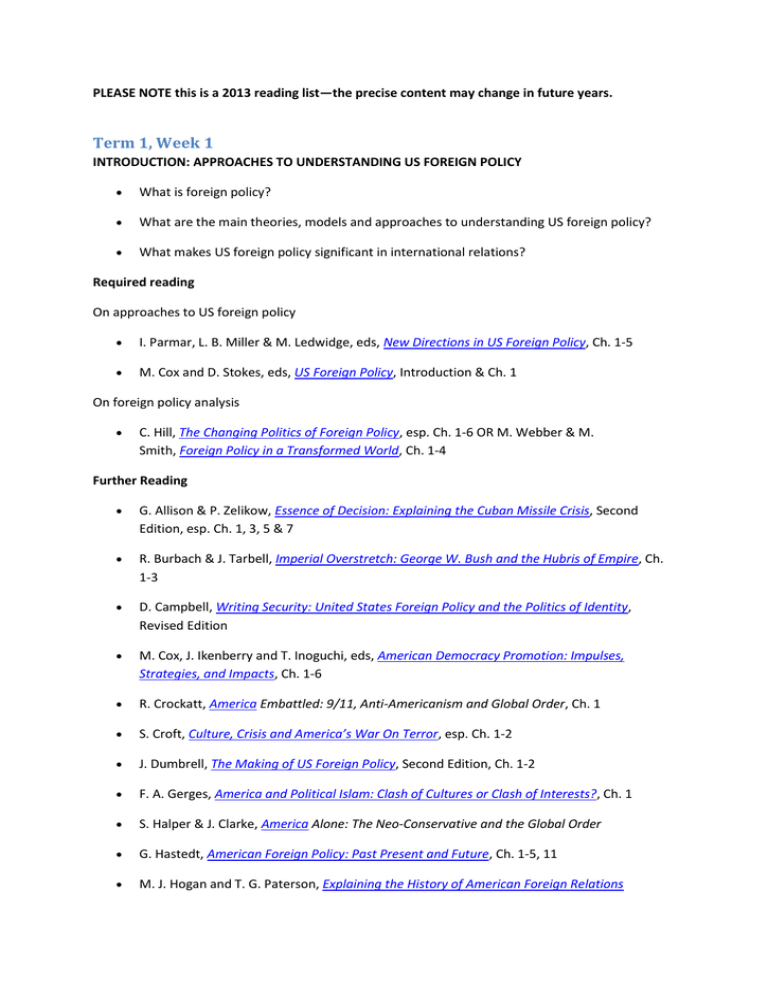
PLEASE NOTE this is a 2013 reading list—the precise content may change in future years. Term 1, Week 1 INTRODUCTION: APPROACHES TO UNDERSTANDING US FOREIGN POLICY What is foreign policy? What are the main theories, models and approaches to understanding US foreign policy? What makes US foreign policy significant in international relations? Required reading On approaches to US foreign policy I. Parmar, L. B. Miller & M. Ledwidge, eds, New Directions in US Foreign Policy, Ch. 1-5 M. Cox and D. Stokes, eds, US Foreign Policy, Introduction & Ch. 1 On foreign policy analysis C. Hill, The Changing Politics of Foreign Policy, esp. Ch. 1-6 OR M. Webber & M. Smith, Foreign Policy in a Transformed World, Ch. 1-4 Further Reading G. Allison & P. Zelikow, Essence of Decision: Explaining the Cuban Missile Crisis, Second Edition, esp. Ch. 1, 3, 5 & 7 R. Burbach & J. Tarbell, Imperial Overstretch: George W. Bush and the Hubris of Empire, Ch. 1-3 D. Campbell, Writing Security: United States Foreign Policy and the Politics of Identity, Revised Edition M. Cox, J. Ikenberry and T. Inoguchi, eds, American Democracy Promotion: Impulses, Strategies, and Impacts, Ch. 1-6 R. Crockatt, America Embattled: 9/11, Anti-Americanism and Global Order, Ch. 1 S. Croft, Culture, Crisis and America’s War On Terror, esp. Ch. 1-2 J. Dumbrell, The Making of US Foreign Policy, Second Edition, Ch. 1-2 F. A. Gerges, America and Political Islam: Clash of Cultures or Clash of Interests?, Ch. 1 S. Halper & J. Clarke, America Alone: The Neo-Conservative and the Global Order G. Hastedt, American Foreign Policy: Past Present and Future, Ch. 1-5, 11 M. J. Hogan and T. G. Paterson, Explaining the History of American Foreign Relations O. R. Holsti, Making American Foreign Policy, Ch. 1-3, 12 S. W. Hook, US Foreign Policy: The Paradox of World Power, Ch. 3 M. Hunt, Ideology and US Foreign Policy, Ch 1 R. J. Jackson and P. Towle, Temptations of Power: The United States in Global Politics after 9/11, Part 1 B. Jentleson, American Foreign Policy, Third Edition, Ch.1-2 C. W. Kegley, Jr & E. R. Wittkopf, American Foreign Policy: Pattern and Process, Fifth Edition, Ch. 1-2, 13-14 R. J. Lieber, The American Era: Power and Strategy for the 21st Century, Ch. 1 T. B. McCrisken, American Exceptionalism and the Legacy of Vietnam: US foreign policy since 1974, esp. Ch. 1-2 T. M. Magstadt, An Empire If You Can Keep It, Ch. 1 W. R. Mead, Special Providence: American Foreign Policy and How it Changed the World H. R. Nau, At Home Abroad: Identity and Power in American Foreign Policy, Intro & Ch. 1-3 L. Neack, The New Foreign Policy: US and Comparative Foreign Policy in the 21st Century J. Nye, Soft Power: The Means to Success in World Politics, esp. Ch 1-2 I. Parmar & M. Cox, eds, Soft Power and US Foreign Policy S. Renshon & D. Welch Larson, eds, Good Judgment in Foreign Policy, Ch. 1-2 D. Ryan, US Foreign Policy in World History, Ch. 1-3 K. K. Schonberg, Constructing 21st Century US Foreign Policy [Electronic resource] S. Smith, A. Hadfield and T. Dunne, Foreign Policy: Theories, Actors, Cases J. W. Taliaferro, Realism and US Foreign Policy: The Primacy of Power M. Webber & M. Smith, Foreign Policy in a Transformed World, Ch. 1-4 W. A. Williams, The Tragedy of American Diplomacy, esp. Intro, Ch. 1 & Conclusion
